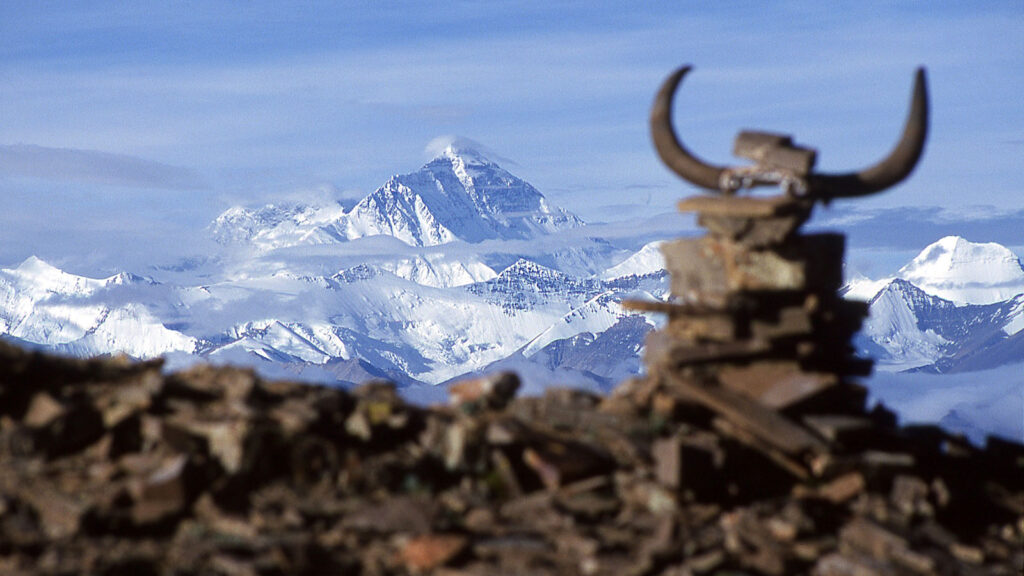My picture shows Mount Everest from the Tibetan side as I saw it. It looks beautiful and inaccessible, but it also reminds me of a world that is moving ever faster and more ambitiously. Up to 230 people climb it in one day.
Dynamic energy shapes a time orientation and can trigger the self-organisation of living systems, which is not obvious in the current idea of a time-neutral nature. However, self-organised living systems are more efficient in energy acquisition and consumption than simpler inorganic processes. They are subject to a goal orientation that is predetermined by the system itself. This gives direction to evolution, contrary to the common view: Those species that consume energy most efficiently and build up order in the process will be successful. Of course, this only works as long as they are able to accumulate sufficient energy.
Their programme is maximum entropy production (which requires maximum energy turnover) within the given constraints. Undoubtedly, the current winner of the race for energy on our planet is man. Having massively usurped energy from the plant and animal kingdoms through agriculture and exploited the soil through geology, he will continue this race through globalisation and gain further energy advantages. Science fiction films demonstrate how energy-rich our future is imaginable, and by moving to “booming” cities, people are experiencing this trend. But if greed for energy is part of biological evolution, how can we ultimately control it and save industrial society from self-destruction? It is the evolving mind with its goal orientation that has to deal with this problem, which forward-looking personalities have already recognised.


 Deutsch
Deutsch Italiano
Italiano